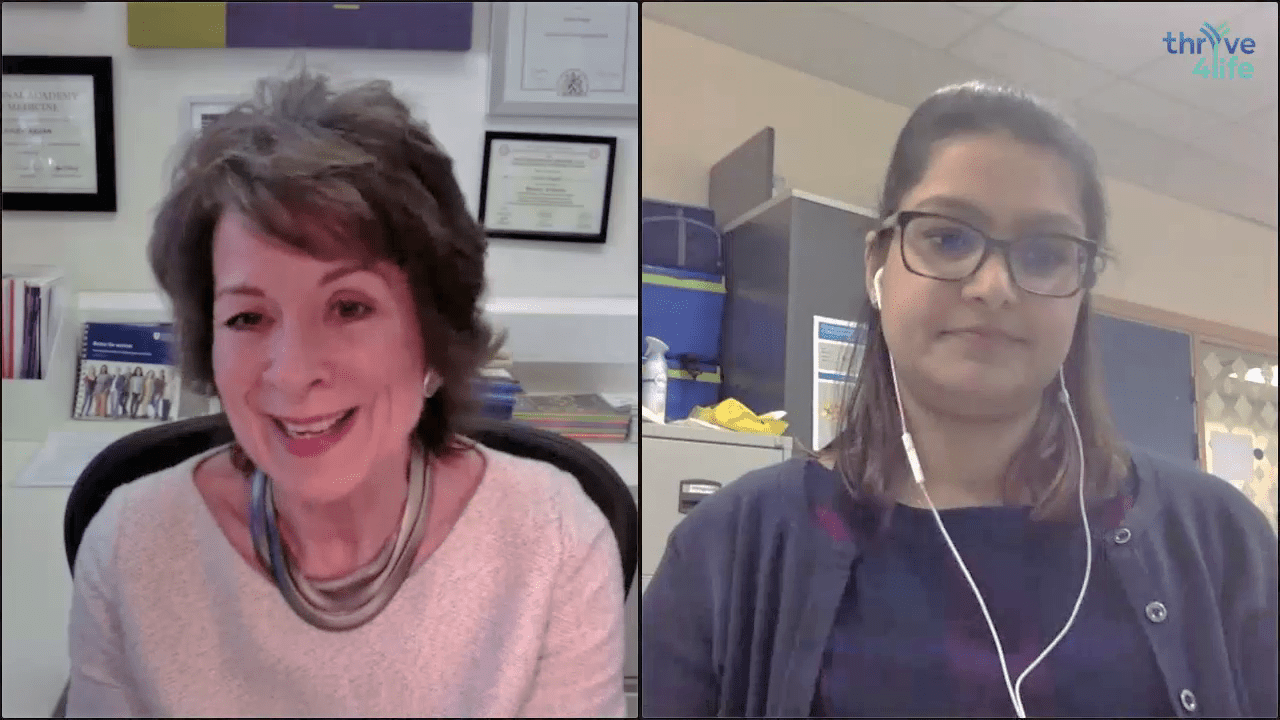A huge thank you from Thrive4Life to Dame Professor Lesley Regan and Dr Varsha Jain for their incredibly insightful discussion regarding women’s health and wellbeing, held on Tuesday 8th March (International Women’s Day).
Prof Regan covered key topics including how period health is taken for granted by a lot of people, whether this is women themselves, families, workplaces, research organisations. Professor Regan highlighted the fact that heavy periods affect 1 in 3 to 1 in 4 women and yet it’s still a topic we just don’t talk about. Professor Regan talked about why education from an early age is so important, but not just for girls and women. Even in this modern age, it’s still a taboo subject and it’s important that women understand about their periods, what is normal versus abnormal from the menarche to menopause and beyond.
Prof Regan went on to talk about how many women fear cancer. Whereas in fact, the true prevalence of cancer in women is low. However, women quite often underestimate heart disease, bone health and these are in fact the top conditions that end a woman’s life. She went on to stress how important it was to encourage women to look after their hearts and bones throughout life so that these problems are not just realised after the menopause.
The discussion focused on the importance of women to prioritise their health and wellbeing at every stage of their life to through the things such as regular exercise, balanced diet, and good social connections.
Prof Regan and Dr Jain discussed how pregnancy can sometimes be a window into a women’s future and can become the eye opener into why a healthy lifestyle is needed. Although life can get hectic with young children, it’s actually the best time to start really focusing on your health and wellbeing so that you have more healthy years with your family.
Although many women worry about cancer, it is interesting that cervical cancer seems to take less priority with women’s concerns. Prof Regan and Dr Jain discussed when Jade Goody’s disclosure of the fact that she had cervical cancer (mid 2008) led to more than 500,000 additional cervical screening attendances. Unfortunately, that effect wore off within a few years. Prof Regan described how screening is not a test for cancer, instead helps prevent cancer as cervical cancer is often asymptomatic. Women between 25-64 should be invited for screening where a sample is taken from the cervix to check for human papillomavirus (HPV). Having just one screening test can reduce the risk of cancer.
Prof Regan highlighted the fact that with the average age of women increasing, women now have more years without periods than we do with them, and this is why it is so important for women to think about prioritising their health and wellbeing so that they can enjoy these post-menopausal years in good health.
When asked if she could pick a leading topic in educating women in health matters Prof Regan stated contraception, both here and internationally. International Women’s Day is a reminder to us all that gender equality across the world can only be achieved with access to sexual and reproductive healthcare and rights. Many young people across the world find challenges and stigma, when seeking the sexual and reproductive healthcare and information they need to make informed choices. The path towards a more gender-equal world begins with reproductive choice. Improving the rights to education and access to contraception on the world stage will help girls and women determine their futures.
For more information about the fascinating work being carried out by Prof Regan and Dr Jain please visit:
Would your employees be interested in attending a similar webinar talk?
Thrive4Life provides a wide range of educational livestreamed talks to connect your employees to leading health and wellbeing experts. These events are designed educate and empower your staff to lead healthier and more productive work lives.










